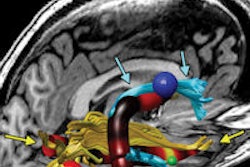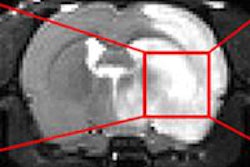Wednesday, December 3 | 11:40 a.m.-11:50 a.m. | SSK09-08 | Room N228
Never be afraid to ask for a second opinion on gynecologic MRI results, especially when it might significantly change patient management. Researchers from New York City will explain why in this Wednesday session.Their study found that second opinions from radiologists who specialize in gynecologic imaging altered patient management by approximately 20%.
The research was led by Dr. Melvin D'Anastasi, who spent time at Memorial Sloan Kettering Cancer Center as a visiting European School of Radiology scholar, and Dr. Yulia Lakhman from Memorial Sloan Kettering.
Between January 2008 and July 2013, 469 second-opinion readings of outside gynecological MRI studies were performed by one of four radiologists specializing in gynecology.
The second opinions changed patient management in 94 (20%) of the 469 cases for one surgeon and in 101 (21%) of the 469 cases for a second surgeon. Perhaps most importantly, second-opinion reports changed patient management from surgery to a nonsurgical plan in approximately 7% of both surgeons' cases.
The MRI interpretations by the specialized radiologists were accurate in 82% of cases, using histopathologic specimens and imaging follow-up as reference standards.
"Gynecologic MRI plays an important role in the care of patients with gynecologic tumors, often contributing to initial diagnosis, determination of disease extent, treatment selection, and treatment follow-up," D'Anastasi said. "For example, in patients with endometrial cancer, MRI is a valuable tool for pretreatment risk stratification, aiding the identification of patients who stand to benefit from pelvic and para-aortic lymph node dissection."
In women with cervical cancer, MRI improves the accuracy of International Federation of Gynecology and Obstetrics (FIGO) clinical stage determination, leading to more precise treatment selection and planning, he added.
In conjunction with prior studies in other imaging disciplines, the results from this study support the idea that subspecialty imaging provides added value in a setting of multidisciplinary, disease-specific care, the researchers concluded.




















